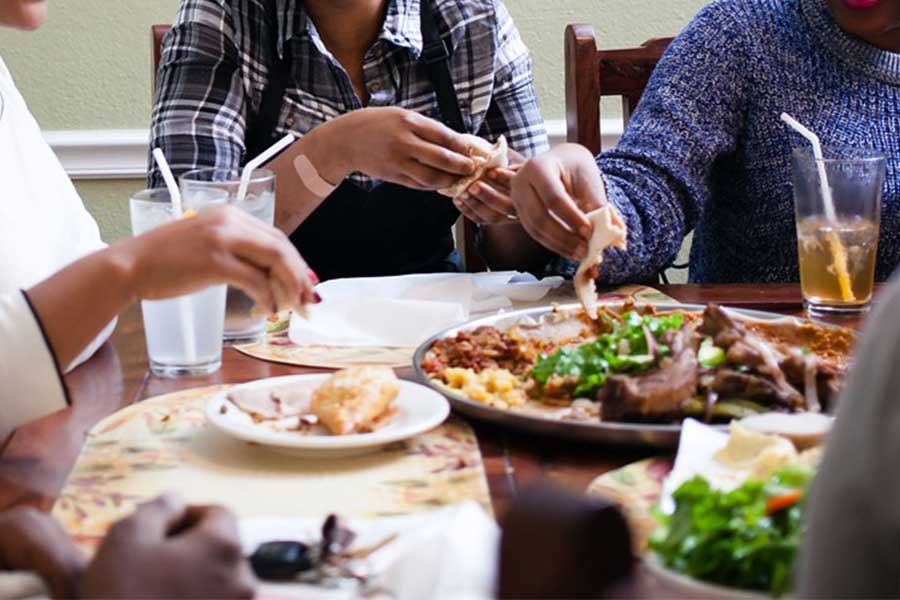
Mar 14 , 2020
By Christian Tesfaye
Such a global frenzy of panic has not been seen in a long time. What is surprising is that while we need to be cautious and prepared about the Novel Coronavirus Disease 2019 (COVID-19) in Ethiopia, the first confirmed case of which was reported Friday, we should also panic about the pandemic of panic.
The number of people that insist that the disease had already entered the country, weeks before it finally did, and that the government was hiding it to save face is alarming. It is even more frightening that many of us remain severely misinformed about the disease.
Should we be worried about the Novel Coronavirus?
At least two centenarians and a five-day-old baby have recovered from the disease. People with a relatively strong immune system can expect to make a full recovery. In fact, around four-fifths of confirmed cases are mild, and only one to four percent of infected people die from the disease. The mortality rate may be even lower given that detection of mild cases is still not up to snuff.
“The problem with just dividing the total number of deaths and the total number of cases is that it does not account for unreported cases or the delay from illness to death,” said Adam Kucharski, a mathematician at the London School of Hygiene & Tropical Medicine.
It gets better. Tens of thousands have already recovered. It is also helpful to consider the context. The Severe Acute Respiratory Syndrome (SARS), which was an outbreak in 2002, killed 10pc of its victims, while seasonal flu takes the lives of up to 650,000 people every year.
Does this mean that the panic over this disease is entirely unwarranted?
Not really. The chances of survival for this disease may be very high, but it is not the seasonal flu our body is used to. It is about 20 times more deadly than the flu and is more infectious. In case of a global pandemic, it can have severe consequences on health systems, especially if they are weak, like that of Ethiopia's.
But the panic over the disease may be deadlier. Recently, 16 people died in Iran due to a rumour that drinking alcohol would help prevent people from getting the COVID-19 virus, according to the BBC, which quoted an official Iranian news agency.
Facts around the disease have served as the perfect breeding ground for misinformation, conspiracy theories and disinformation. This is bad news for Ethiopia. Our poor record of proper documentation and sober analysis makes it likely that we will not handle information about the virus very well.
It is likely that religious gurus will pop up at every corner promising magic cures, while people infected with the virus will be treated with intolerance. It is also likely that, in the event of a major outbreak, we will rearrange our lives by limiting our number of workdays, go into a buying frenzy of hand sanitizers and face masks (to the detriment of the doctors and nurses who actually need those supplies) and further our mistrust of health professionals and institutions.
Such actions will actually make matters worse. It will be a disaster if people take to consuming garlic but do not heed the advice to wash their hands properly. It will be a disaster if we continue to dine in close proximity, feeding each other with our hands and hug, shake and kiss every remote friend and relative we come across.
The disease is a crisis we cannot take lightly, and the inability of the health system infrastructure to handle an outbreak should worry us. But we should also wonder if our culture is upto the challenge of tolerance and change. If we are unable to reason, trust health professionals or, most importantly, tolerate and support those who become infected, the Novel Coronavirus should indeed make us panic.
PUBLISHED ON
Mar 14,2020 [ VOL
20 , NO
1037]


Covid-19 | Apr 17,2020

Films Review | Apr 17,2020

Viewpoints | Aug 27,2022

View From Arada | May 11,2024

Covid-19 | May 09,2020

Viewpoints | Aug 14,2021

Featured | Nov 12,2022

Editorial | Jul 25,2020

Radar | Jun 14,2020

Commentaries | Sep 06,2020

Photo Gallery | 174128 Views | May 06,2019

Photo Gallery | 164351 Views | Apr 26,2019

Photo Gallery | 154476 Views | Oct 06,2021

My Opinion | 136632 Views | Aug 14,2021
Editorial | Oct 11,2025

Dec 22 , 2024 . By TIZITA SHEWAFERAW
Charged with transforming colossal state-owned enterprises into modern and competitiv...

Aug 18 , 2024 . By AKSAH ITALO
Although predictable Yonas Zerihun's job in the ride-hailing service is not immune to...

Jul 28 , 2024 . By TIZITA SHEWAFERAW
Unhabitual, perhaps too many, Samuel Gebreyohannes, 38, used to occasionally enjoy a couple of beers at breakfast. However, he recently swit...

Jul 13 , 2024 . By AKSAH ITALO
Investors who rely on tractors, trucks, and field vehicles for commuting, transporting commodities, and f...

Oct 11 , 2025
Ladislas Farago, a roving Associated Press (AP) correspondent, arrived in Ethiopia in...

Oct 4 , 2025
Eyob Tekalegn (PhD) had been in the Governor's chair for only weeks when, on Septembe...

Sep 27 , 2025
Four years into an experiment with “shock therapy” in education, the national moo...

Sep 20 , 2025
Getachew Reda's return to the national stage was always going to stir attention. Once...

Oct 12 , 2025
Tomato prices in Addis Abeba have surged to unprecedented levels, with retail stands charging between 85 Br and 140 Br a kilo, nearly triple...

Oct 12 , 2025 . By BEZAWIT HULUAGER
A sweeping change in the vehicle licensing system has tilted the scales in favour of electric vehicle (EV...

Oct 12 , 2025 . By NAHOM AYELE
A simmering dispute between the legal profession and the federal government is nearing a breaking point,...

Oct 12 , 2025 . By NAHOM AYELE
A violent storm that ripped through the flower belt of Bishoftu (Debreziet), 45Km east of the capital, in...